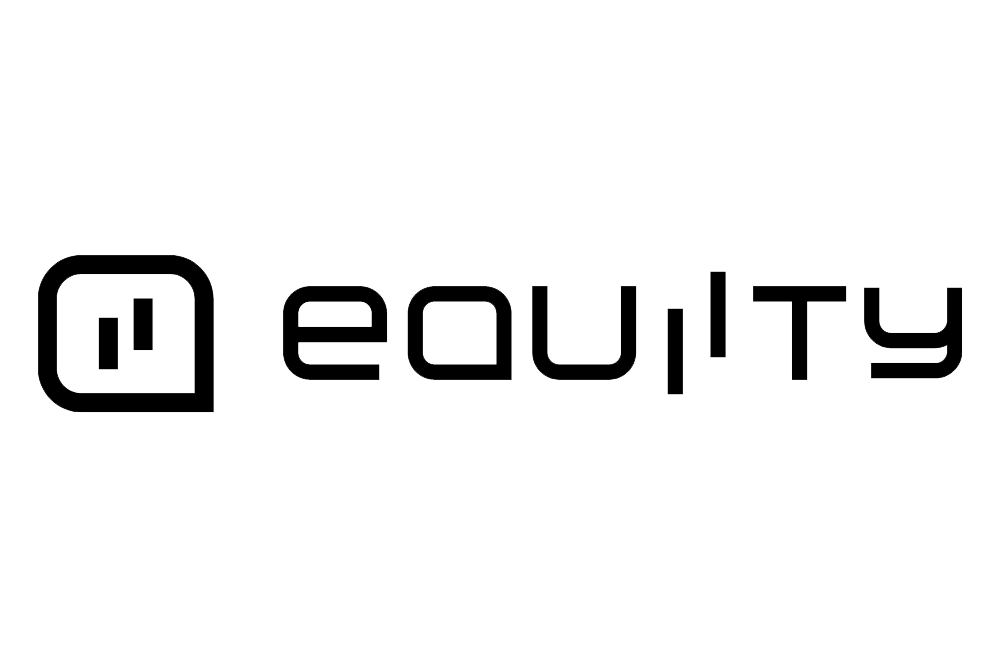The terms “stock market” and “equity markets” are interchangeable. Both terms refer to the buying and sale of shares in public corporations on any of the world’s numerous stock exchanges and over-the-counter marketplaces. The stock market is a complete explanation of what is equity markets as it has evolved into one of the most critical aspects of a market economy.
It provides firms with funding to expand their operations. It gives investors a stake in a company with the possibility of profit from their investment dependent on its future performance. A portion of stock represents an equity interest in the underlying corporation.
Stock market investors purchase shares of a publicly-traded firm in the hopes of obtaining a portion of the gains in the form of dividends or profiting from the increase in the stock price, or both.
What is Equity Market- Definition?
The Equity Markets are where buyers and sellers of stocks meet. Public stocks are listed on a stock exchange, or privately traded stocks are traded in the equity markets. Private equities are frequently exchanged through dealers, which is an over-the-counter market.
Trading can take place either publicly – on public exchanges – or privately, with issuances and trades launched by dealers rather than a centralized exchange. OTC marketplaces are defined by their usage of dealers in the private market.
Companies list their stocks on a stock exchange to raise funds and expand their operations. Equity markets are a type of equity financing in which a firm trades a part of its ownership for funds. This amount is then put to a number of uses in the firm. Debt financing, which relies on loans and other forms of borrowing to get funds, is the polar opposite of equity financing.
History of Equity Markets
Equity markets have a long and noble history. In 1531, Belgium founded the first stock exchange with debt issuances dating back to the 1300s. Promissory notes and bonds were the mainstays of the market, but no real equities were traded.
During the 1600s, the British, Dutch, and French governments granted charters to corporations. The countries would share in the riches from Asia by supporting marine journeys that would bring products back — despite the dangers of pirates, bad weather, and sloppy navigation.
In their earliest versions, limited liability organizations (LLCs) were designed to last only one journey. As a result, investors may spread their risk by investing in many ships and voyages, and shipowners could send their ships without taking any risks.
Advantages and Disadvantages of Equity Markets
Trading in the stock market has both benefits and drawbacks. The way we act determines the outcome of any scenario. Let’s start with the list:
Advantages
Good Wealth Generation: The ability to make a large profit is the main advantage of the equity markets. Many investors have received large profits that no other financial investment can match.
Easy Entry and Exit: You can quickly enter and exit a stock or equity market. When selling a house, this should be compared to the fact that you cannot always sell it on your own.
Low Taxes: When equity is sold for a profit after being held for more than one year, the profit is taxed at 10%. Fixed deposits are taxed at the individual’s marginal tax rate, which can be as high as 30%.
Disadvantages
Lack of Understanding Costs High: In the live equity markets environment, if you do not adequately research or invest in terrible stocks, your chances of losing money are considerable.
Volatile Market: The return on equity investments does not follow a straight line. In the real-time equity market, there are ups and downs.
Capital Erosion Risk: Trading in equity shares carries the risk of capital loss.
Types of Equity Markets
The list of largest equity markets is given below:
- US- New York Stock Exchange (NYSE)
- US- NASDAQ
- Japan- Japan Exchange Group (JEG)
- UK- London Stock Exchange (LSE)
- China- Shanghai Stock Exchange (SSE)
- Hong Kong- Hong Kong Stock Exchange (HKSE)
- European Union- Euronext
- Canada- Toronto Stock Exchange
Difference between Stocks and Equity
There isn’t much of a distinction between stock and equity. These two words are widely used interchangeably to refer to shares. The terms stock and equity are interchangeable. Online equity trading platforms are used for trading stocks.
What s Equity Market Trading?
Investors bid for stocks by proposing a certain price, while sellers ask for a specific price in the equity markets. A sale occurs when these two prices are equal. Frequently, multiple investors compete for the same stock. When this happens, the first investor to put a bid gets the shares first.
When a buyer pays any price for a stock, it is said to be purchased at market value; similarly, when a seller accepts any price for a stock, it is sold at market value.
When a corporation sells its stock on the open market is termed as publicly traded, and stocks characterize a portion of the firm’s ownership. This appeals to investors, and when a company succeeds, the value of its stock rises, rewarding its shareholders.
The risk is that its stock value will drop when a firm isn’t performing well. This is because stocks can be readily and quickly bought and sold, and the activity surrounding a particular stock impacts its real value. For example, when a lot of people invest in a company, the equity price hikes, and when a lot of investors want to sell their stocks, the prices drop.
Things to Consider Before Trading in Equity Markets
The Equity markets are bustling with traders and investors looking to make a profit. It can be difficult to process a lot of data at times. There are also other sorts of equity markets. As a result, having certain ground rules before trading in equities is always a smart idea.
- Never go against today’s equities market mood – The trend is your plus point. Do not attempt to take completely contrarian bets unless you are very certain. The danger element rises when you go against the grain.
- Buy at low prices, and sell after hiked- Look for equities trading at historically low prices with low valuations. When you acquire such stocks, you can profit when the stock price rises again.
- Plan for the long-term trading- Nobody can forecast what the equity markets will do next in the short term. As a result, it’s critical to take a long-term approach to your trading.
- Intraday Trading– Before you jump on the stock market bandwagon by following random advice, it’s a good idea to learn how to do intraday trading so you can get better results from your trades and investments.
What is Stock Exchange?
Stock exchanges can be in the form of real or virtual gathering places. For example, Nasdaq is a virtual trading post where equities are traded electronically across a network of computers. Electronic trading posts are getting increasingly popular and are replacing physical exchanges as a favored way of trading.
The NYSE on Wall Street is a famed physical stock exchange; however, it also offers the option of trading in online equity exchanges, making it a mixed market.
Importance of Equity Markets
In a market-based economy, equity markets are critical. They can help with capital raising, liquidity, and investment. These vital functions are the symbols of capitalism, as they enable our economy to grow at a constant rate. These factors are explained below:
Capital Raising
Equity markets facilitate the ability to raise equity capital. This is critical for entrepreneurs who have a business idea but lack the necessary funds to get it off the ground.
Banks are debt investors, and they are hesitant to lend to these companies without collateral or a disproportionately high return. As a result, giving up a stake in their company in exchange for financing is a good idea for these entrepreneurs.
These enterprises can access the largest pools of cash through equity markets because they don’t have to go out and find individual investors; instead, investors are brought to them through a network of investment banks and financial exchanges.
Liquidity
Market liquidity is also provided through equity markets. The unclog with which a stock can be converted into cash is liquidity. For example, Checking accounts are the most liquid, but a painting is illiquid.
Because equity markets are a concentrated center for buyers and sellers, it’s simple to identify someone eager to buy or sell your stock, and you can easily convert your stock into cash.
Equity markets are powerful price engines because they reflect the immediate underlying supply and demand from millions of investors throughout the world. Stock prices rise when demand is high and buying activity is high, whereas stock prices fall when demand is low, and selling activity is high.
Investment Options
Investors can choose from a variety of investment options in the equity markets. In addition, investors can tailor their risk profile and gain exposure to various firms and industries by choosing from various equity securities.
Equity markets are also viable for debt investing, which is advantageous to investors with larger risk tolerance.
International Equity Markets?
One of the most important capital generation sources for a firm is the international equity market. This enables firms to become publicly traded and obtain extra financial resources for expansion by selling shares of ownership in the company on a global public market.
The New York Security Exchange (NYSE) is the world’s most reputable stocks exchange, with a market mechanism designed to provide large corporations and investors with optimal market quality.
The market for issuing and trading shares, either through exchanges or over-the-counter marketplaces. The equity market is one of the most important aspects of a market economy. It provides enterprises with access to cash and investors with a piece of ownership in a company with the opportunity to make money based on future performance.
Equity Market Timings
There is currently no stock trading system that is available 24*&. The trading hours for the equity market are 9:15 a.m. to 3:30 p.m, Monday through Friday. Trading does not take place on Saturdays and Sundays unless there are exceptional circumstances.
Conclusion
The stock market, also known as the equity market, is where companies’ shares are issued and sold through exchanges or over-the-counter markets. Since the 1980s, the global equity markets have risen at an incredible rate, and the worldwide market valuation is now approximately US$100 trillion, with US equities accounting for more than half of the market.
A well-regulated broker, such as PrimeFin, can help you get your feet wet in the stock market. The broker is known for offering its clients favorable terms and a user-friendly environment. Always remember that choose the strategy that works best for you and stick to it. Do not hop from one to another under the influence of someone.
FAQs
Q1. What do you mean by Equity market?
An equity market is where companies’ shares are issued and traded on exchanges or over-the-counter. The equity market is one of the most important aspects of a market economy.
Q2. What is the distinction between Stock and Equity?
Equity is the amount of cash spent by a company’s promoter in exchange for a piece of the company’s ownership. In contrast, stocks are equity shares offered to the general public to raise capital in exchange for a share of the company’s ownership.
Q3. Investing in Equity markets is a good idea?
The ability to grow the value of the principal amount invested is the primary benefit of an investment in equity markets. Capital gains and dividends are examples of this. An equity fund provides investors with a diverse investing choice for a little initial commitment.
Q4. How to buy equity or invest in equity markets??
- Using a company-sponsored retirement plan
- Directly through a fund provider








